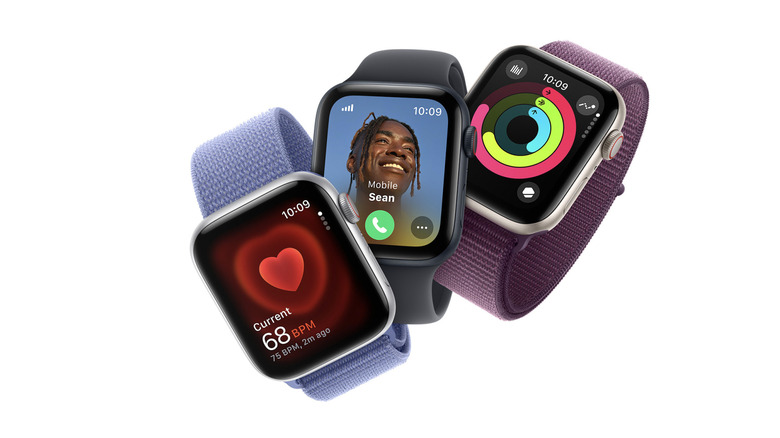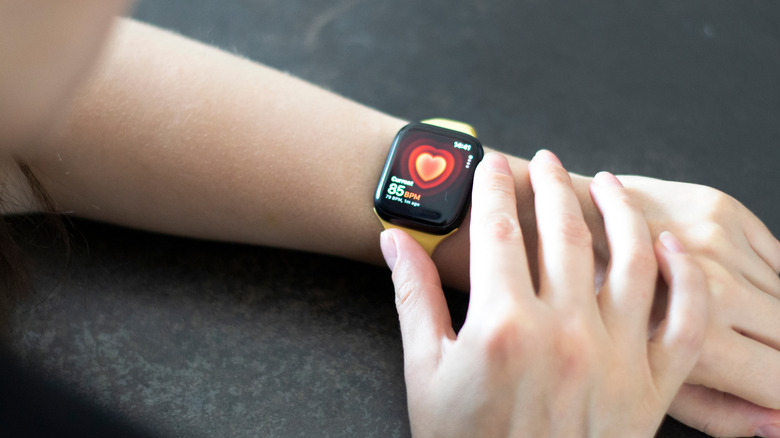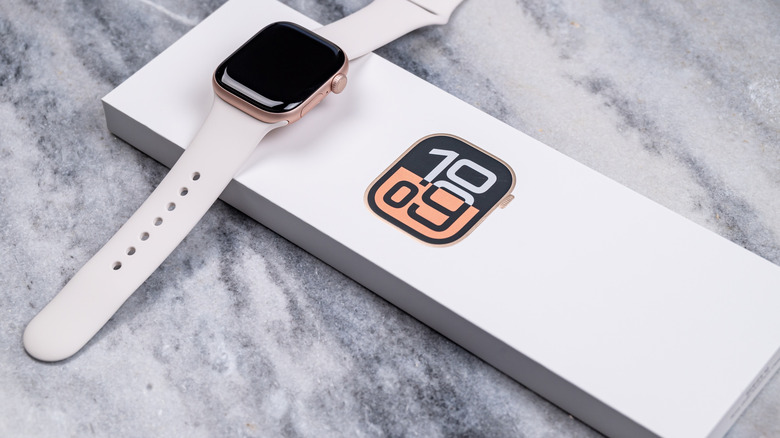Is It Worth Getting An Apple Watch With Cellular Support? Here's What You Should Know
When it comes to buying an Apple Watch, there are several things you should take note of, such as the different international versions, support for your preferred apps, and compatibility with other Apple devices. These days, there are even a ton of Apple Watch accessories by Apple, as well as third-party manufacturers, designed to enhance your experience. Apart from magnetic fast chargers and docks, there are also aesthetic add-ons, like watch bands, straps, and cases. However, one of the most crucial decisions you'll have to make and one that can impact your overall cost of ownership and access to features is whether or not you should get a model with cellular support.
For its entry-level Watch model, the Apple Watch SE starts at $249 for its GPS model, while the cellular-capable one goes for $50 more at $299. On the other hand, the 42mm Apple Watch Series 10's GPS version sells for $399, while its GPS + Cellular counterpart is $100 more expensive at the $499 mark. So, you if you're currently in the market for your first Apple Watch (or looking to upgrade from an older, non-cellular-compatible model), you may be wondering if the extra $50 to $100 price difference is worth it. To help you decide, we've rounded up some critical pros and cons that you may want to consider before committing, as well as a few examples of who stands to benefit the most from this version of the Apple Watch.
Pros and cons of Apple Watches with cellular support
With an Apple Watch with cellular support, you can enjoy several iPhone features on your wrist. For example, you can use many of the iOS apps, like the maps and emergency systems. Plus, you are reachable via messages or calls, wherein you can respond in just a few taps. But while Apple Watches with cellular support have a ton of advantages, cost is definitely not one of them. Apart from being more expensive, they also have recurring fees that you need to pay to your carrier to access the benefits. Not to mention, if you're a frequent traveler, it's possible that roaming features won't work in the countries you visit. Unless it's set up with "Apple Watch For Your Kids", it's also limited to the same carrier as your iPhone. As for the day-to-day usage problems, we've mentioned before how cellular connectivity is a common reason for Apple Watch battery drain.
On the other hand, if you're the kind of person with a dwindling attention span, you may want to take a pause before adding a cellular-compatible Apple Watch to cart. For people trying to rewire their ability to focus, having endless notifications on your wrist can have negative effects on your already overstimulated brain. Although it is possible to adjust your notification settings, you'll need to ask yourself how much you actually need to be constantly connected if you're going to silence them anyway.
Should you get an Apple Watch with cellular support?
As with many tech solutions, whether it is worth getting the Apple Watch cellular support depends on your lifestyle. In general, the people who benefit the most from using an Apple Watch with cellular support are those who need to be constantly reachable. Now, there are a bunch of use cases for this, particularly if you're not a fan of having your iPhone with you at all times.
To start with, parents who use Apple Watches to keep track of their children may benefit from being able to contact them, even when phones are tucked away in bags or even left at home. In the same vein, if you are using the Apple Watch to manage your elderly parents remotely, it can help prevent harm or even save their lives with emergency features. Compared to the AirTag, which has reach limitations, an Apple Watch with cellular capabilities covers a lot more ground and is a more interactive way to be in touch.
Alternatively, Apple Watches are also perfect for athletes, who don't want the hassle of looking at their mobile phones during training sessions. Not only can it reduce distractions, but it can double as a way to measure performance. And of course, people who work in fields that are related to emergency response, like doctors, nurses, or EMTs, can use Apple Watches with cellular data to make sure they never miss an important message.


